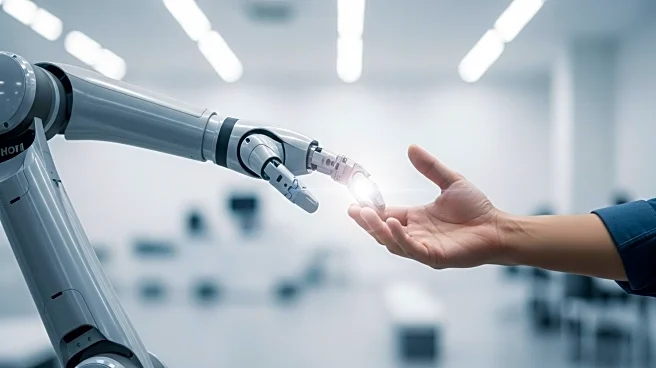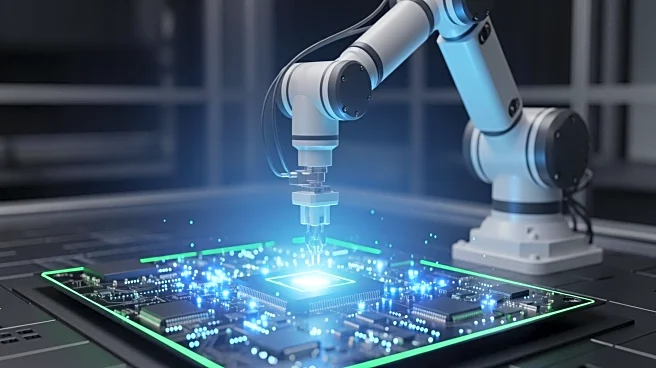What is the story about?
What's Happening?
Walmart, the largest private employer globally with 2.1 million workers, is preparing for a significant transformation in its workforce due to the integration of artificial intelligence (AI). CEO Doug McMillon has stated that AI will impact every job within the company, but he assures that there are no plans for widespread layoffs. Instead, Walmart aims to maintain a stable headcount over the next three years as job roles evolve. The company is focusing on equipping employees with the necessary tools and support to adapt to these changes. Walmart has already implemented automation in warehouses and introduced new roles such as 'agent builders' while deploying AI chatbots for various functions. The company is also investing in a skills-first approach, emphasizing training and reskilling over traditional degree requirements. This includes a partnership with OpenAI to launch an AI certification program for employees in 2026.
Why It's Important?
The integration of AI into Walmart's operations is significant as it reflects a broader trend in the U.S. job market where technology is reshaping employment landscapes. By focusing on reskilling and training, Walmart is setting a precedent for other companies on how to manage technological disruption without resorting to mass layoffs. This approach could potentially lead to a more adaptable workforce, capable of handling future technological advancements. The emphasis on human skills alongside technological proficiency highlights the importance of a balanced approach to workforce development. As AI continues to evolve, companies that invest in their employees' growth and adaptability may gain a competitive edge, fostering innovation and productivity.
What's Next?
Walmart plans to continue its investment in employee training and development, with a significant focus on AI-related skills. The upcoming AI certification program, in partnership with OpenAI, is a key component of this strategy. This initiative is part of a broader $1 billion investment in skills training, which aims to prepare employees for the future of work. As Walmart implements these changes, other businesses may observe and potentially adopt similar strategies to manage the impact of AI on their workforces. The success of Walmart's approach could influence industry standards and practices, encouraging a shift towards more sustainable and employee-focused business models.
Beyond the Headlines
Walmart's strategy highlights the ethical and cultural dimensions of integrating AI into the workplace. By prioritizing employee development and maintaining job stability, the company addresses concerns about job displacement and economic inequality. This approach also underscores the importance of corporate responsibility in navigating technological advancements. As AI becomes more prevalent, companies will need to consider the social implications of their technological strategies, ensuring that they contribute positively to society and the economy.















